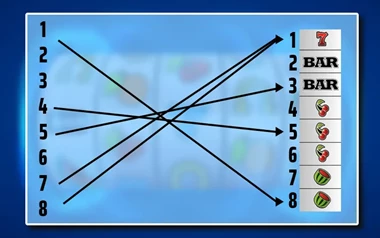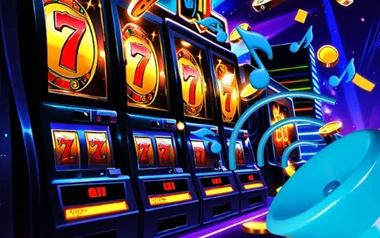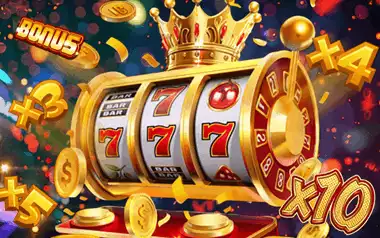Why do people risk it all on the turn of a card? Or chase a win after a crushing loss? The answer isn’t just “they want money.” It's deeper. It’s brain chemistry. It’s upbringing. It’s emotion, impulse and sometimes pure superstition.
Gambling isn't just a pastime. It's a psychological playground. And we’re all wired a bit differently when we step up to the table.
The Brain Loves a Buzz
Dopamine. That’s the culprit. The feel-good chemical in your brain. You get a surge of it when you win. But oddly, you also get it when you nearly win. That “so close” moment. The slot reels almost align. The ball skips past your number. That feeling? It’s not disappointment. It’s anticipation.
Your brain says, “Try again. You're almost there.” And so, people do.
This is what keeps gamblers coming back, especially on fast-paced games like online slots. A cocktail of unpredictability and reward lights up the brain’s pleasure centre.
It’s the same mechanism behind why people binge-watch series or scroll endlessly through social media. Except here, it’s money on the line.
Losses Feel Worse Than Wins Feel Good
Here’s a kicker. Losing $100 feels more painful than winning $100 feels joyous. That’s not just opinion. It’s called loss aversion.
Psychologists have studied it for years. Our brains are hardwired to avoid loss more than they are to seek gain. It explains why some players chase their losses. They’re not greedy. They’re trying to get back to zero.
Ironically, the harder someone tries to undo a loss, the more emotionally invested they become. The risk-taking doesn’t decrease. It intensifies.
That’s where best gambling sites can help—by offering tools that set limits before things get sticky. The smarter platforms actively promote responsible play. Boundaries make the game fun. Not a trap.
Risk: It’s Not One-Size-Fits-All
People take risks for different reasons.
Some are sensation-seekers. They love speed, danger and surprise. For them, gambling is a thrill ride.
Others are escape artists. They gamble to forget. Life’s tough, and the casino is a distraction. A break from the grind.
Some simply enjoy strategy. Poker. Blackjack. Games where skill counts. The risk here is calculated, not chaotic.
And a few chase identity. They want to be “the guy who won big.” Social status plays its part. So does pride. When someone wins, everyone hears. When they lose, it’s quiet.
The psychology of gambling isn’t just about the gamble. It’s about the person.
Luck, Control, and a Bit of Magical Thinking
You’ve seen it. A player won’t sit at a “cold” slot machine. Someone else wears lucky socks to a betting shop. These aren’t quirks. They're coping mechanisms.
Gamblers often believe in control—where there is none. It’s called the illusion of control. A belief that their actions affect outcomes in games of chance.
Throw in a bit of magical thinking and you've got rituals, lucky charms and routines. These aren’t just harmless fun. They help players manage anxiety. When outcomes are uncertain, the brain craves patterns. Even fake ones.
Ironically, this belief in control is strongest among experienced players. They know the odds but still cling to habits.
Best gambling sites use this insight wisely. They show odds clearly. They remind users that luck is, well, luck. Transparency cuts through the fog.

Social Influence The Herd Mentality
Social Influence: The Herd Mentality
People follow people. If a mate wins big on roulette, you're more likely to try it. If a streamer celebrates a jackpot, viewers take note.
That’s social proof in action.
Casinos know this. It’s why you'll see leaderboards, jackpots and community wins. It creates buzz. And buzz breeds play.
There’s also FOMO—fear of missing out. If everyone’s talking about the latest slot release, people want in. They don’t want to be the one who missed the magic moment.
The most responsible best gambling sites use this wisely. They create fun, but temper the hype. Balance is key.
The Gambler’s Fallacy
One of the most common psychological traps? The gambler’s fallacy. The idea that past outcomes affect future ones.
“If red’s come up five times in a row, black must be next.” It’s nonsense. But it feels logical.
This fallacy leads to increased bets, longer sessions and bigger losses.
Understanding this is vital. The roulette wheel has no memory. The slot machine doesn’t know it “owes you.”
It’s all chance. No karma. No balance. Just probability.
Self-Control and Impulse
Some people walk away after one bet. Others spiral. The difference often lies in impulse control.
Stress, alcohol, lack of sleep—all reduce it.
Ever seen someone play more recklessly after a bad day? That’s impulse taking over. And once it does, rational thinking checks out.
The best players know this. They build routines. Stick to budgets. Take breaks.
And they use features on platforms like Gambling Zone, which help players keep on track. Cool-off periods. Deposit caps. Session timers.
Simple. But powerful.
Gambling isn’t random. Not entirely. The outcomes might be, but the decision to play? That’s psychology.
Understanding what drives you can make all the difference. Are you playing for fun? For escape? For the thrill? Knowing the "why" helps shape the "how".
And remember: the best gamble is the one you can afford to lose. If you’re not enjoying the ride, it’s time to step off.
For those who want to enjoy a flutter responsibly, best gambling sites don’t just offer games. They offer guidance. They protect players. They build trust.
At Gambling Zone, we’re here to keep it fair, fun and informed.
Always play with your eyes open—and your head screwed on.







